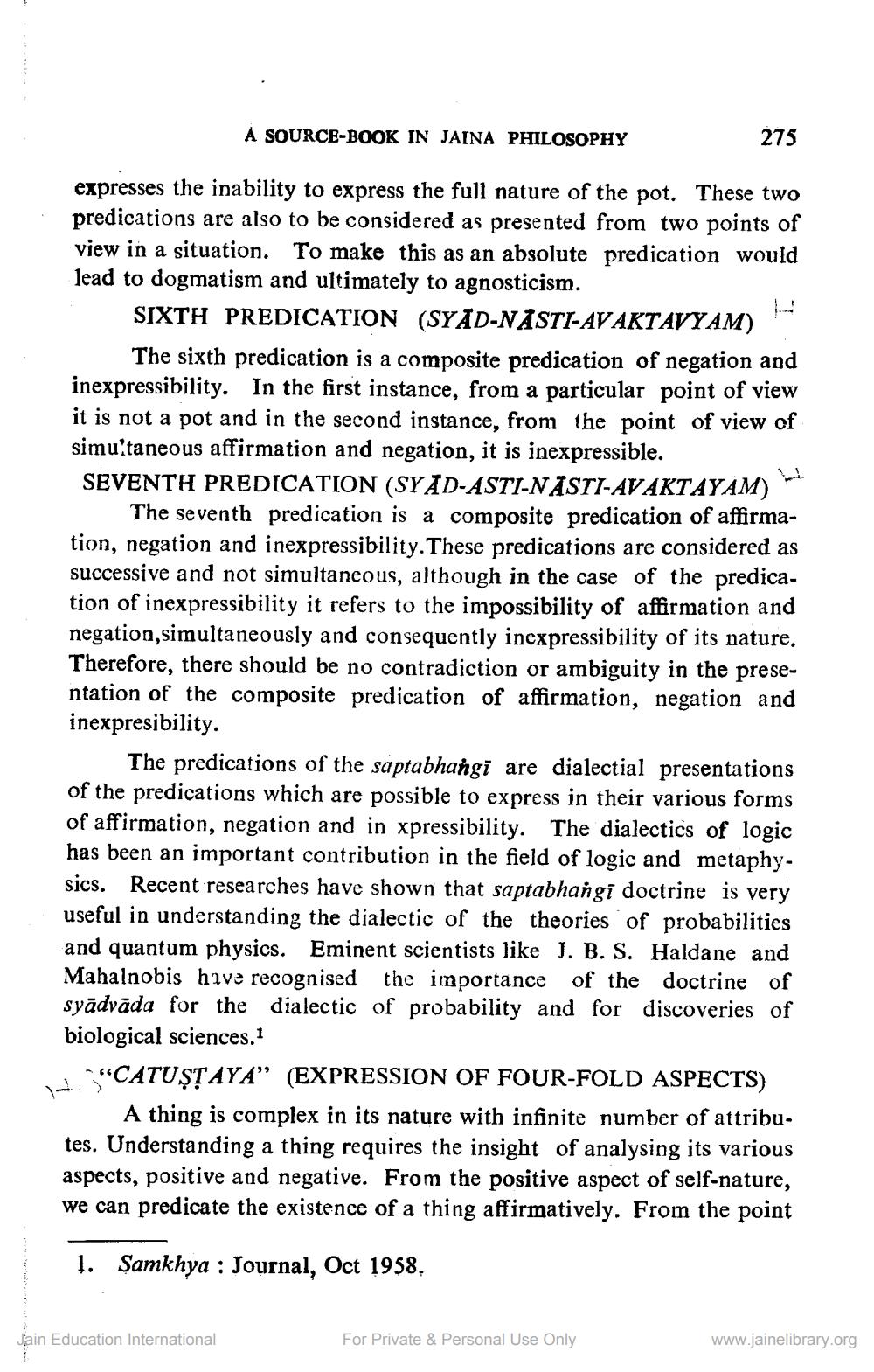________________
A SOURCE-BOOK IN JAINA PHILOSOPHY
275
expresses the inability to express the full nature of the pot. These two predications are also to be considered as presented from two points of view in a situation. To make this as an absolute predication would lead to dogmatism and ultimately to agnosticism.
SIXTH PREDICATION (SYAD-NASTI-AVAKTAVYAM)
The sixth predication is a composite predication of negation and inexpressibility. In the first instance, from a particular point of view it is not a pot and in the second instance, from the point of view of simu taneous affirmation and negation, it is inexpressible. SEVENTH PREDICATION (SYAD-ASTI-NASTI-AVAKTAYAM)
The seventh predication is a composite predication of affirmation, negation and inexpressibility. These predications are considered as successive and not simultaneous, although in the case of the predication of inexpressibility it refers to the impossibility of affirmation and negation, simultaneously and consequently inexpressibility of its nature. Therefore, there should be no contradiction or ambiguity in the presentation of the composite predication of affirmation, negation and inexpresibility.
The predications of the saptabhangi are dialectial presentations of the predications which are possible to express in their various forms of affirmation, negation and in xpressibility. The dialectics of logic has been an important contribution in the field of logic and metaphysics. Recent researches have shown that saptabhangi doctrine is very useful in understanding the dialectic of the theories of probabilities and quantum physics. Eminent scientists like J. B. S. Haldane and Mahalnobis hive recognised the importance of the doctrine of syādvāda for the dialectic of probability and for discoveries of biological sciences. ," "CATUȘTAYA” (EXPRESSION OF FOUR-FOLD ASPECTS)
A thing is complex in its nature with infinite number of attributes. Understanding a thing requires the insight of analysing its various aspects, positive and negative. From the positive aspect of self-nature, we can predicate the existence of a thing affirmatively. From the point
1. Samkhya : Journal, Oct 1958.
Jain Education International
For Private & Personal Use Only
www.jainelibrary.org




